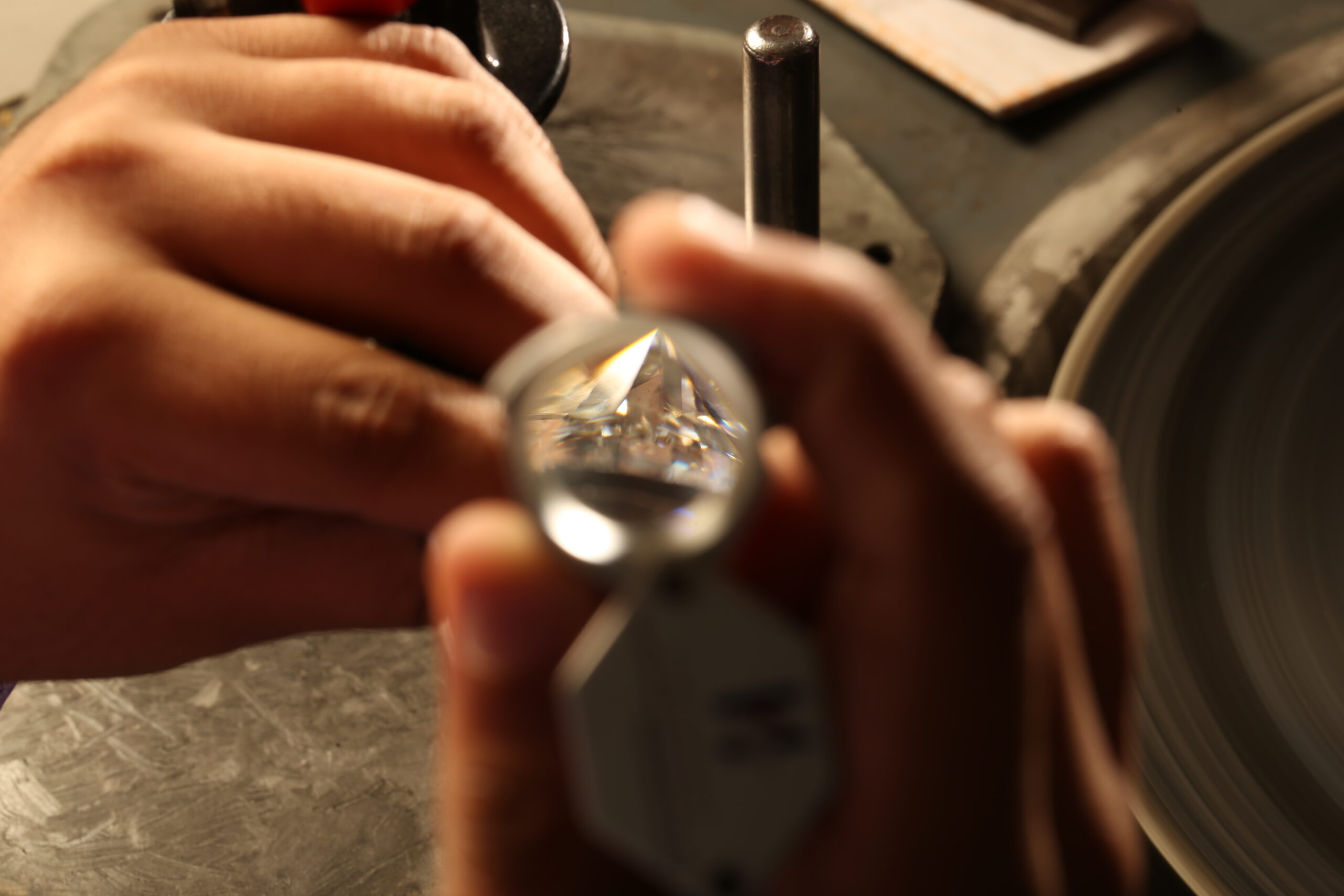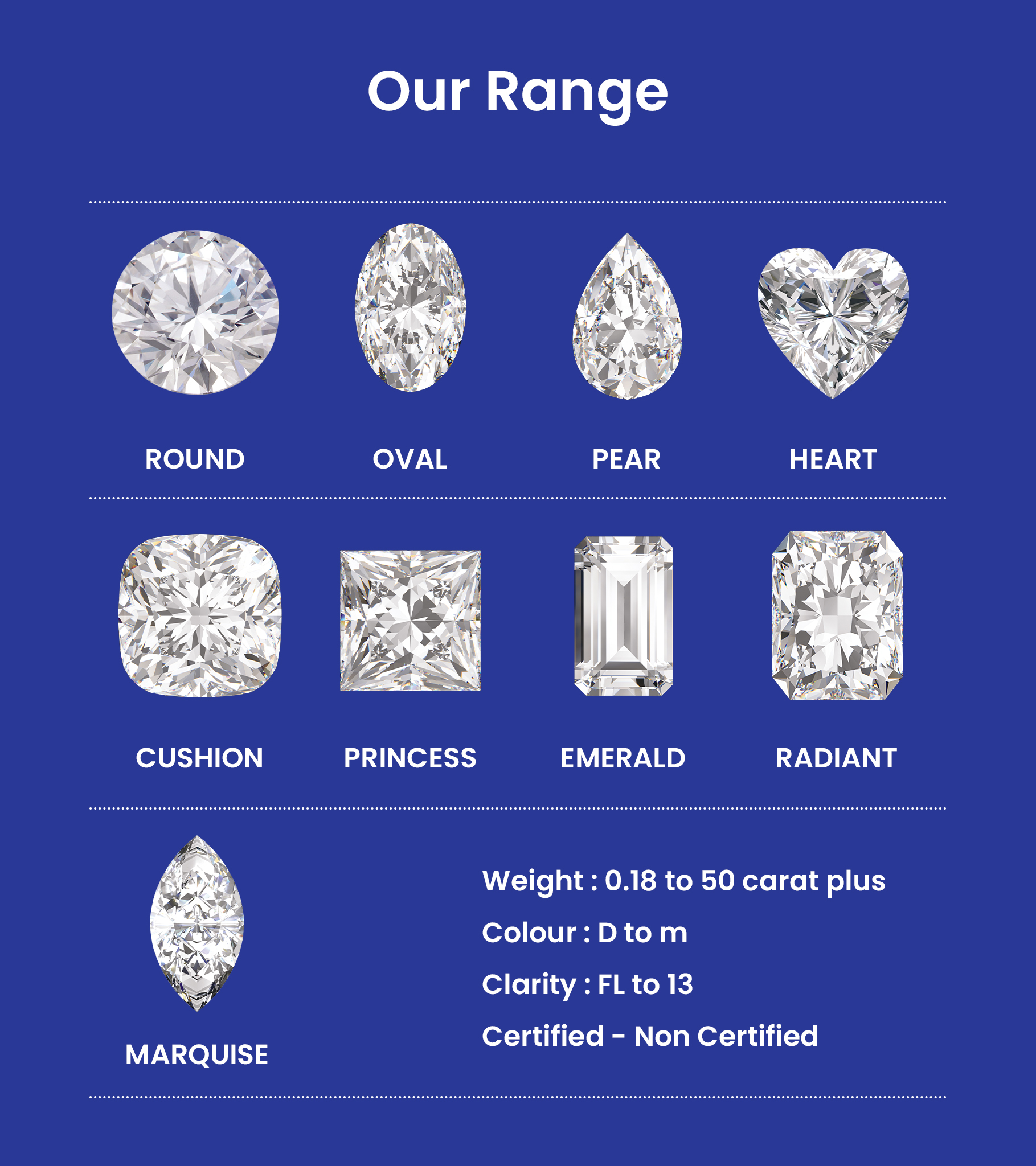Diamond buying guide: All about certified and non-certified diamonds explained
Posted by Hari Krishna
November 21, 2022
Buying diamonds can be overwhelming especially when you don’t know exactly what and how to evaluate the diamond. Considering how expensive diamonds can be, you cannot afford to make wrong choices.
That is exactly the purpose of a diamond certification- to help everyone make the right decision when buying diamonds. It provides extensive details about the 4Cs (Colour, cut, clarity and carat) apart from other details about the stone.
On the other hand, there are non-certified diamonds which aren’t necessarily bad. It’s just that they do not come with the backing of a third-party verification and you can only depend on the retailer’s word for assessing the value or quality of the diamond.
Let’s understand the differences between certified and non-certified diamonds, diamond grading labs and more. This diamond buying guide will help you make the right choice.
Simply put, certified diamonds are those which have been graded or certified by a reputable gemological lab. The quality and characteristics of the diamonds have been evaluated and the results are recorded in a grading report, more popularly known as a diamond certificate.
Here the most crucial thing is that the diamond certificate should be issued by an independent entity that has no association with the manufacturer, i.e., the third-party laboratory.
Many gemological laboratories in the world provide independent diamond certificates, some of which are:
❖ Gemological Institute of America (GIA)
❖ American Gem Society (AGS)
❖ European Gemological Laboratory (EGL)
❖ International Gemological Institute (IGI)
❖ Hoge Raad Voor Diamant (HRD)
❖ Gemological Science International (GSI)
❖ Gem Studies Laboratory (GSL)
❖ National Gemstone Testing Center (NGTC)
❖ Gem Certification and Assurance Lab (GCAL)
Out of these, the Gemological Institute of America (GIA) is considered to be the most reputable and dependable. They implement the strictest measures of grading and the diamond goes through multiple tests to ensure a high level of accuracy. At the end, a GIA diamond report is made which has all the results.
If you want to know more about GIA certified diamonds specifically, you can read our dedicated blog
Also, one must not get confused with an appraisal which is a document that values the diamond in monetary terms, while the certificate values the diamond in quality terms.
Certified diamonds are more valuable since the grading acts as proof of authenticity and verifies that the diamond meets all quality standards.
However, don’t be alarmed if your jeweler does not have a certificate for the diamond you want to purchase because not all diamonds are certified since it is not compulsory.

Gemological laboratories do not certify a diamond for free. There is always a price tag attached to getting your diamonds certified and it is a costly and time consuming process.
Therefore, it makes sense for jewelers to send only solitaire diamonds or large, more expensive stones to be certified at a laboratory. As a standard practice, only diamonds above 0.25 carats in weight are certified.
This is one of the reasons why certified diamonds are more expensive. If these diamonds are overshooting your budget, you can always go for non-certified diamonds.
Diamonds that have not been put through any kind of third-party testing or formal lab grading, are known as non-certified diamonds. These diamonds may or may not have a self-grading certificate from the manufacturer.
Keep in mind that non-certified diamonds are not necessarily low quality or low value.
It just does not make sense to get very small diamonds graded where the price of testing will compete with the actual price of the diamond.
Non-certified diamonds also allow a jeweler to increase the price range they offer. Buyers get an option in the lower price range.
Non-certified diamonds are nothing to be scared of (for diamonds less than and of 0.5 to 0.25 carats) if you can trust the brand or retailer you are purchasing the diamond from.
In case of non-certified diamonds, you should be able to trust the seller or the company behind it. Well-known and big brands will not risk their reputation and defraud their buyers by selling inauthentic diamonds.
As a last resort, you can also request to get the diamond graded by offering to cover the expenses. Just be sure to do this before you buy the diamond.
It depends on your choice and your needs. If you are looking for an inexpensive or smaller diamond, go with a non-certified diamond. Just make sure you do not buy non-certified diamonds from an unknown seller.
On the other hand, if you are looking for a validated diamond that has been graded by international gemological labs and want to have extensive details about the diamond right to its source or the mine it came from, you can go for certified diamonds. It is a safe bet and you can be sure that whatever you have paid for is authentic and valuable.
It is advisable to buy certified diamonds if you are purchasing a bigger diamond and are already paying a large amount for it. In that case, why not pay a little more and get a certified diamond which will increase the resale value of your diamond and give you peace of mind.
Being the best diamond manufacturer in India, we can proudly say that we grade all our diamonds internally and document the report as the Faith grading certificate. Also, our grading standards are in line with the GIA standards.
You can be sure of the diamond quality of any certified/non certified diamonds at HK, as all of them are supported with an in-house faith grade certificate along with third-party certifications from GIA, IGI, HRD, GSI, GSL, and NGTC upon request.

With our commitment towards excellence, transparency, and quality, our diamonds are exported to over 80+ countries, including Australia, Belgium, Europe, UAE, the USA, etc.
Explore our exclusive collection of sparkling diamonds, both certified and non certified by registering yourself on hk.co